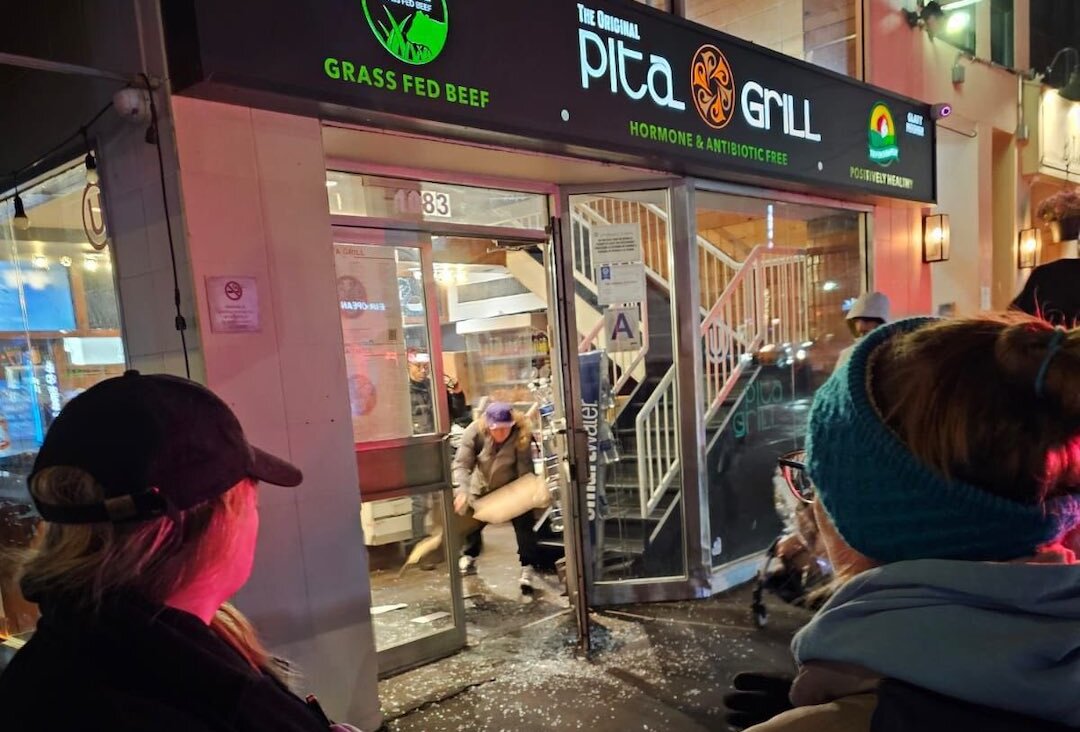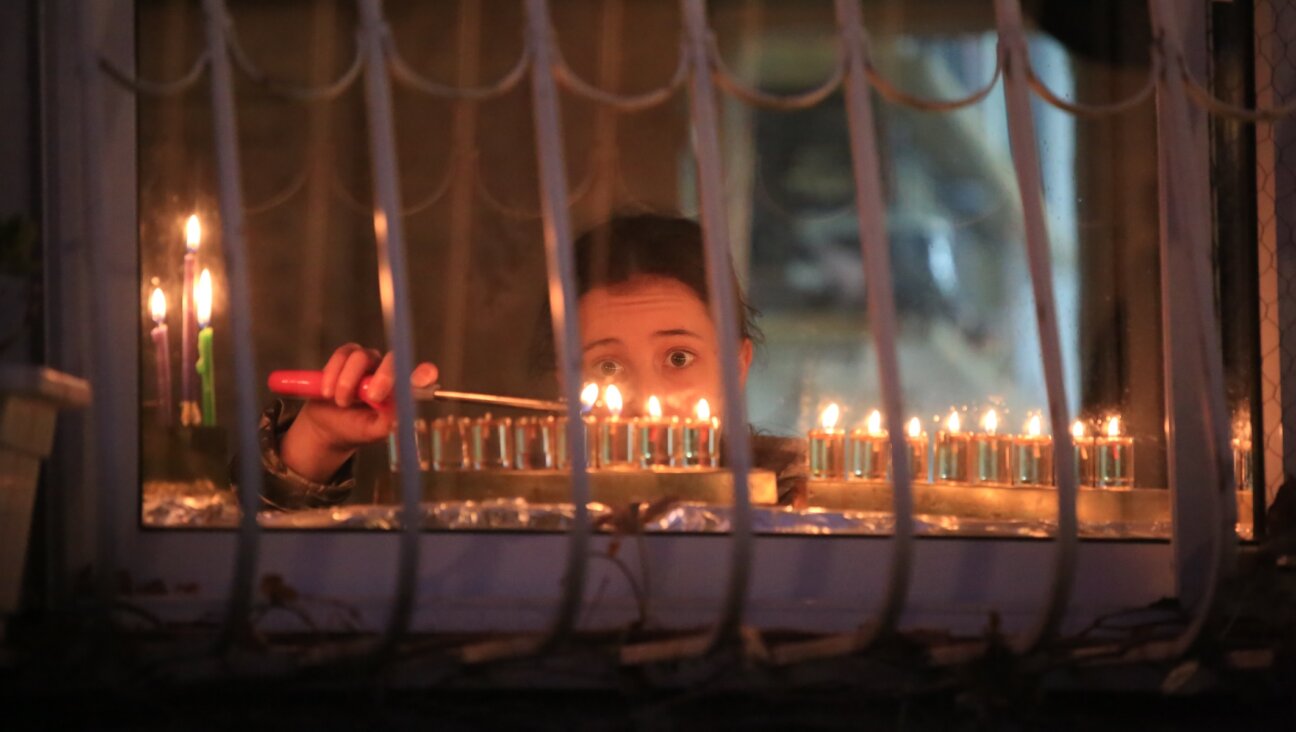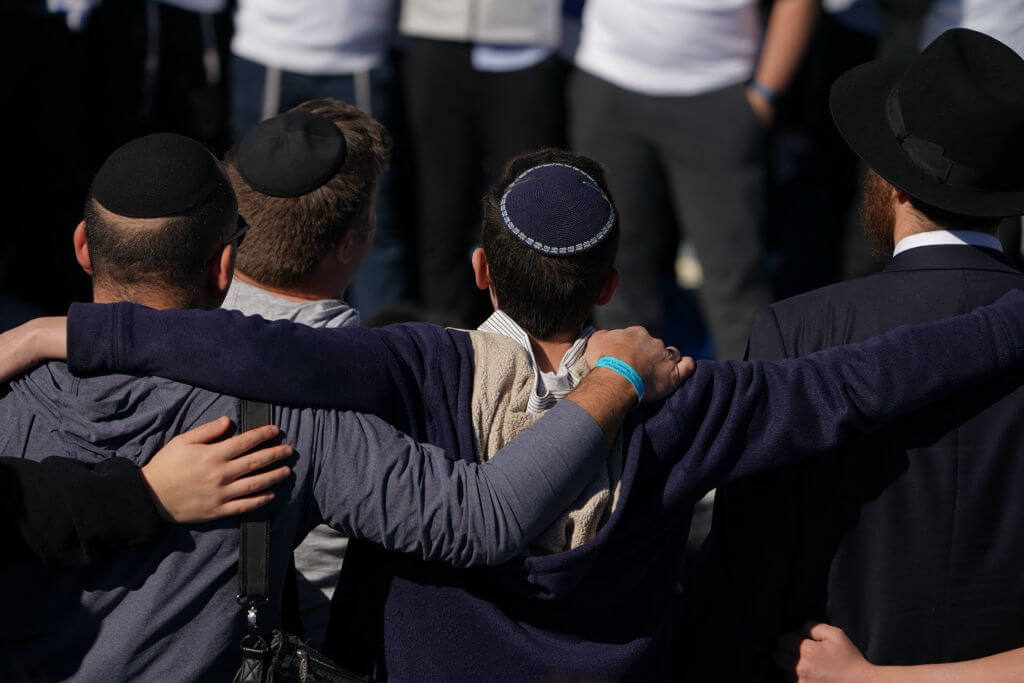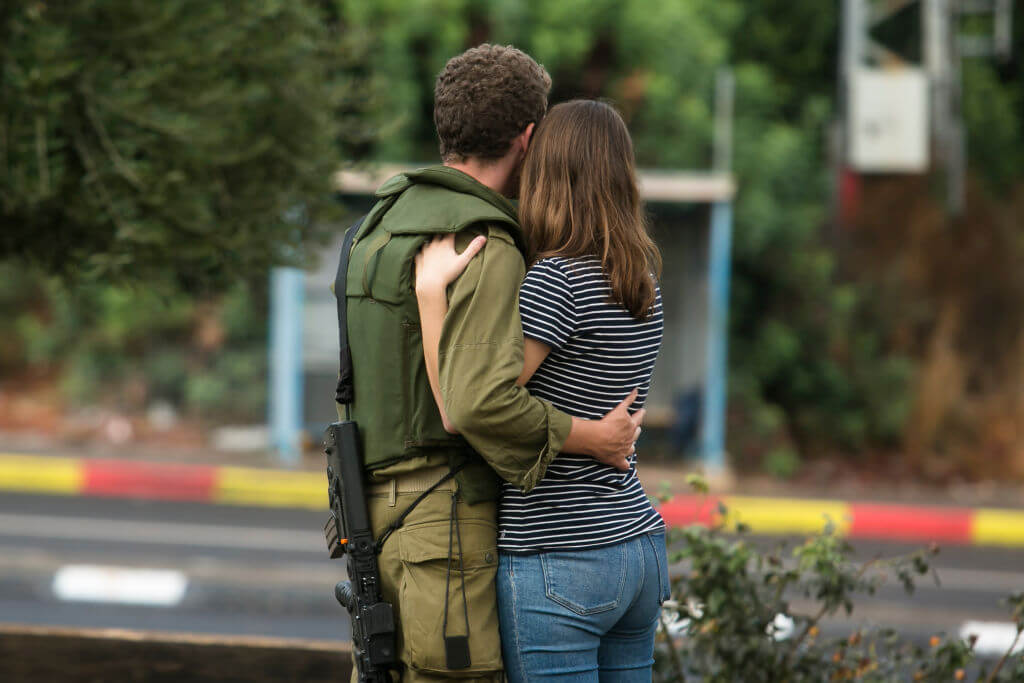Sheikh Jarrah is just latest battle for Israeli who has spent 20 years fighting Arabs — and Jews — to “redeem land”

By EMMANUEL DUNAND/AFP via Getty Images
He lives in the controversial Israeli settlement Ofra in the occupied West Bank, having grown up in Beit El, another settlement that has been the object of numerous legal disputes. He was a student and protege of the late Rabbi Benny Elon, a right-wing politician known for leading yeshiva students to seize property in the East Jerusalem neighborhood of Sheikh Jarrah. He is connected to a network of at least a dozen different organizations, companies and trusts based in Israel, the West Bank, the United States and tax havens around the world.
Yitzhak Mamo, known as Tzahi, is close to 50, and throughout his adult life has been a key but little-understood figure in the movement to “redeem land” owned or occupied by Arabs for the Jewish state. Most recently, he has been one of the central players in the battle to evict Palestinian families from Sheikh Jarrah that helped spark the latest conflagration between Israel and Hamas militants in the Gaza Strip as well as Arab-Jewish violence within Israel’s so-called mixed cities.
A close examination of 20 years of Israeli court cases and other records involving Mamo provides a rare window on the struggle over land ownership in East Jerusalem, which Palestinians and many international analysts see as the capital of their future state, and the rest of the West Bank.
The investigation reveals that Mamo does not only tangle with Palestinians, but has scuffled with Jews who lent financial support to his campaigns and Jews who do not share his goal of ousting Arab residents of contested properties. It documents that the Israeli government, which publicly defines the Sheikh Jarrah situation and similar contretemps as private real-estate matters, has given an organization Mamo is involved with at least the equivalent of $500,000 since 2015.
And it shows that Israel’s Rabbinic Court — an official and ostensibly neutral body, whose records are not directly open to the public but were submitted as evidence in related civil court cases — has repeatedly sanctioned Mamo’s activities. “Tzahi Mamo did holy work,” the religious court’s judges said in a 2015 ruling in a case involving different properties in Sheikh Jarrah than the ones with the current pending evictions as well as an adjacent East Jerusalem neighborhood known as Nahalat Shimon.
“We’re confident,” the judges added, “that had it not been for their vigorous actions to redeem Jewish properties in the area of old Jerusalem and to have them settled by Jewish families that live there devotedly, many buildings would have remained under gentile possession, and entire neighborhoods would have remained ‘purged’ of Jews.”
Elon, a former Knesset member and transportation minister who died in 2017, said in an interview for a 2012 article for the Israeli newspaper Haaretz that Mamo “really has done great things in that sphere,” referring to their shared efforts to “redeem lands” in Arab possession for Jews and the Jewish state.
“Mamo has been a student and a friend for many years,” Elon said of the man who helped him run the Beit Orot Yeshiva he founded in the early 1990s in East Jerusalem. “He has acted with devotion and success in the complex and complicated task of redeeming lands in Jerusalem and in other additional significant locations. He has faced numerous judicial and legal tests and has passed all of them successfully. I hope that he will continue to act and to succeed in that dangerous and important task.”
Mamo declined to be interviewed for this article, as he has in numerous prior inquiries by this journalist and others in the mainstream Israeli media. However, he did describe some of his activities in the settlement enterprise in a 2008 interview with the police, reported for the first time by this Shomrim investigation, regarding the settlement Migron. (He was not prosecuted in that case.)
Mamo told the police then that he wears “four main hats,” and listed several companies and non-governmental organizations that buy land or houses from Arabs, settle Jews in such properties, and promote tourism in sensitive areas. He said he was involved with a company called Spice Real Estate “consulting governmental and private bodies on the issue of lands;” worked at Kolel Lomdei Shalem, promoting establishment of religious schools in territories captured by Israel in the 1967 war; was “the CEO of sorts” of Reshit Jerusalem Seminary, which has received at least 1.5 million shekels — about $450,000 — from Israel’s education ministry since 2015; and also helped Bnei Rachel, a yeshiva near Rachel’s Tomb at the entrance of Bethlehem.
“I’ve also worked with a large number of companies, roughly 20 in number, that were established for individuals who bought lands privately in Jerusalem and in Judea and Samaria,” he said, using the biblical terms for the West Bank, according to the police transcript of the interview. “My job varies from company to company and mainly includes work in the sphere of buying the properties and evicting” the Arab residents.
Mamo is the only public face in the current legal battle over the eviction of Palestinian residents from six homes in Sheikh Jarrah. An earlier article by the Israeli investigative outlet Shomrim and the Forward showed that a complex tapestry of obscure companies, many incorporated overseas, were behind the eviction efforts.
An Israeli firm established in April 2000, called Nahalat Shimon Ltd., bought the land under the six Sheikh Jarrah homes for $3 million in 2003 from descendants of Jews who had acquired the properties at the end of the 19th century. Mamo appeared in court on behalf of Nahalat Shimon as the person managing the property.
The case is pending before Israel’s Supreme Court, and last week Israel’s attorney general announced he would not intervene in it, making the evictions likely, according to Israeli news reports.
It is one of many such disputes where Mamo has played a critical role.
In one such case, over the purchase of land near the settlement Efrat, Shmuel Becker, a lawyer who was sued along with Mamo, noted in court papers the complexity of such purchases because of a Palestinian prohibition against selling land to Jews. “It is known and is no secret” that Mamo “is an expert (if not the expert) in handling those purchases,” Becker said.
‘Working tirelessly to acquire as many properties as possible’
The Jerusalem Forever Foundation, one of the organizations Mamo was involved in, describes its mission explicitly in an English-language pamphlet distributed to potential donors via email about 15 years ago. “working tirelessly to acquire as many properties as possible in order to return the neighbourhood to its old glory days.” The “neighbourhood” is actually several particular hotspots in the Israeli-Palestinian conflict.
The pamphlet, which was submitted as evidence in the court case involving Efrat, says that buying a property north of the Old City’s Damascus Gate would cost about $2 million at the time, and that the government-backed Reshit seminary, where Mamo said he was CEO, would lease the property back from the buyer. It lists land near Rachel’s Tomb at $2.4 million, and a plot in Sheikh Jarrah at $200,000.
Land purchases—or attempted purchases — like these are carried out by a range of means, including non-profit organizations like Jerusalem Forever and Meyasvei Zion; companies registered in Israel or the West Bank, like Spice Real Estate; companies registered in the U.S. or tax havens like the Marshall Islands; and Hekdesh Trusts, which sets aside properties or other assets for charitable purposes.
Two kinds of Hekdesh trusts exist in Israel: religious and public. There are about 3,200 public trusts, around 400 of which have real-estate holdings, and some 1,050 religious trusts, the majority of which are in Jerusalem and whose assets were estimated at about 6 billion Israeli shekels in 2019, or the equivalent of $1.85 billion today, according to a report in The Marker, a business publication affiliated with Haaretz.
Mamo has been appointed trustee of several Hekdesh trusts, including the Sarah Jonah Trust, which controls several properties in Sheikh Jarrah (not the ones involved in the current eviction battle). Established in 1927, the trust was named for a Jewish woman who had lived on the property, and has been at the center of several legal battles over the last 20 years..
In the early 2000s, Meyashvei Zion, a nonprofit in which Mamo plays a prominent role, won control of the trust via Jerusalem’s Rabbinic Court. At the same time, the Public Trustee, operating under Israel’s Justice Ministry, gave Meyashvei Zion about 250,000 shekels — worth about $77,000 today — that it had collected as rent from the Palestinian tenants who live in the houses registered with the trust. Mamo and his partners told the court that those funds would be used to “guarantee the continued Jewish hold in the neighborhood.”
Nearly a decade later, in 2011, three people who head a separate trust that administers the Georgian community’s holdings in Jerusalem asked the rabbininc court to give them control of the Sarah Jonah Trust, citing instructions from her will that her assets should be used to support that community’s synagogue. The three were awarded trustee status, but soon after sued Mamo and his partners in Meyashvei Zion, saying they had refused to yield control of the properties.
That suit involved a small neighborhood next to Sheikh Jarrah called Nahalat Shimon (near the tomb of Shimon Hatzadik). Mamo’s side said it had conducted “a broad and in-depth historical study” into Jewish ownership and life in the neighborhood before 1948, held “study tours” and otherwise acted “to strengthen Torah studies and to strengthen the Jewish settlement” there “and to rebuild its ruins.”
This is what prompted the rabbinic court’s ruling saying that Mamo “did holy work.”
The judges went on to write that the use of the trust’s assets for what they defined as “redeeming land” was essential. “What value does one house in the heart of a hostile Arab neighborhood have?” they asked. “The use of the revenues to strengthen the Jewish hold in the neighborhood, including the public activity to raise the awareness of figures who might help redeem properties, is the need of the trust itself.”
‘You can’t remove someone’s eye or arm’
The Georgian community filed an appeal that was rejected in 2016, and in 2018 filed another lawsuit, this time in civil court, which is pending.
Michael Ben-Yair, a former Israeli attorney general and descendant of Jonah’s, has also been vying for control of the trust — and promising not to evict Palestinians.
“We will file a suit over the house, we will receive ownership because we have a deed and after we receive ownership we will transfer it to the Palestinians,” Ben-Yair said during a 2017 visit to the neighborhood. “That is a commitment by my entire family.”
And the trustees of the Georgian community’s properties have yet another legal battle with Mamo over a two-story structure near Damascus Gate, whose upper floor served as a synagogue before the 1929 Arab riots. Like Ben-Yair, the Georgian trustees have not moved to evict Arab residents of the building, saying that since it is not currently possible to operate a synagogue three, they will use the rent revenues to support the community’s activities elsewhere.
One of the plaintiffs representing the Georgian community, who spoke on the condition he not be named, said that “the important thing is to install heritage signs” reflecting the area’s Jewish past, not to evict Arab residents.
“People used to live here together,” he said in an interview. “You can’t remove someone’s eye or arm or step on someone—that isn’t the way. No one here intends to go anywhere. Neither the Jews nor the Arabs.” As for Mamo, this person said: “For 20 years I’ve been trying to get what used to be ours, our community’s, and he does whatever he pleases. In the meantime he’s been successful, but we haven’t despaired.”
In the rabbinic court, Mamo and his colleagues called the Georgians’ failure to “redeem” the property from the Arab residents a “fiasco.”
In a somewhat split ruling, the rabbinic court deemed that one member of the Georgian community would join as a trustee to administer the properties, while also praising the actions of Meyashvei Zion, and saying that the rent “should not be used to maintain the synagogue in another neighborhood.”
Hagit Ofran of Peace Now, who has been monitoring the settlement battles in Jerusalem for many years, said that these cases show the problems of allowing rabbinic courts to “operate in the dark,” without the public being able to attend hearings or review rulings.
“The rabbinic court collaborates with ‘hijacking’ the trusts, takes a political stance, and ultimately the price gets paid by Palestinian families whose only sin is that they live in a property that the settlers want,” Ofran said in an interview.
‘A third party who is not a Jew’
Other lawsuits against Mamo and those who worked alongside him concerned failed attempts to buy land. One of the more interesting ones was filed by the American Jaffe family, which paid about $70,000 in 2007 to buy a plot of land near Efrat to expand the settlement.
That deal was advanced by several organizations, including Jerusalem Forever and Meyashvei Zion, and the lawsuit targeted them as well as Mamo and Becker, the lawyer. The Jaffe family said that they had been presented with false information about their ability to buy the land and register it in Israel, and that they later learned that “the man who was presented as the seller of the land had died in 1964 and obviously could not sign over power of attorney.”
Another lawsuit concerned a 2001 deal to buy a building adjacent to Rachel’s Tomb. The plaintiff, Evelyn Hayes, is an American citizen who registered a nonprofit organization and companies in the U.S. to facilitate the purchase. In a legal saga that has been underway for years, Hayes claimed that she paid $370,000 to Mamo and his partners but the property was never registered in her name. The court did not accept her lawsuit.
And in 2012, Mamo sued a man who he said had agreed to sell him a property near Damascus Gate and then never followed through; Mamo demanded 2 million shekels (about $640,000). The court records in that case include the contract, which stipulates that the buyer — Mamo — would never transfer the property “to a third party who is not a Jew.” The case was eventually resolved in mediation outside court.






















